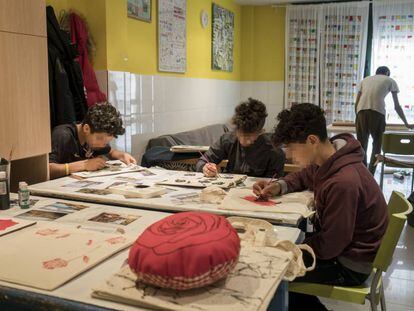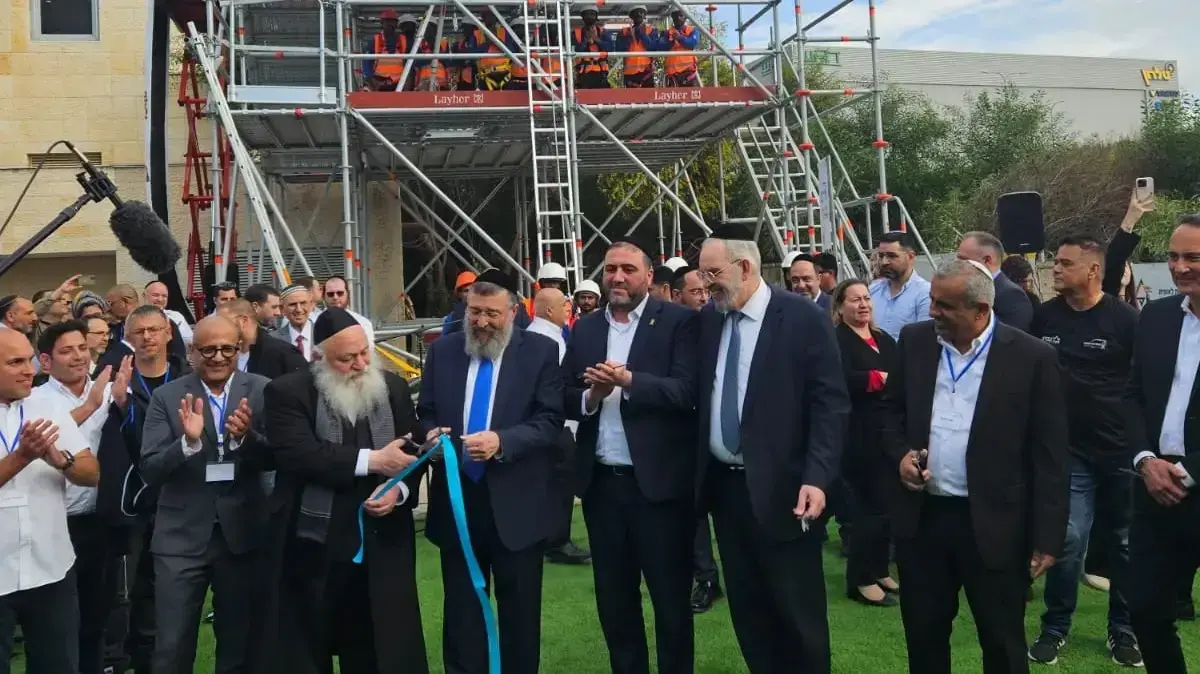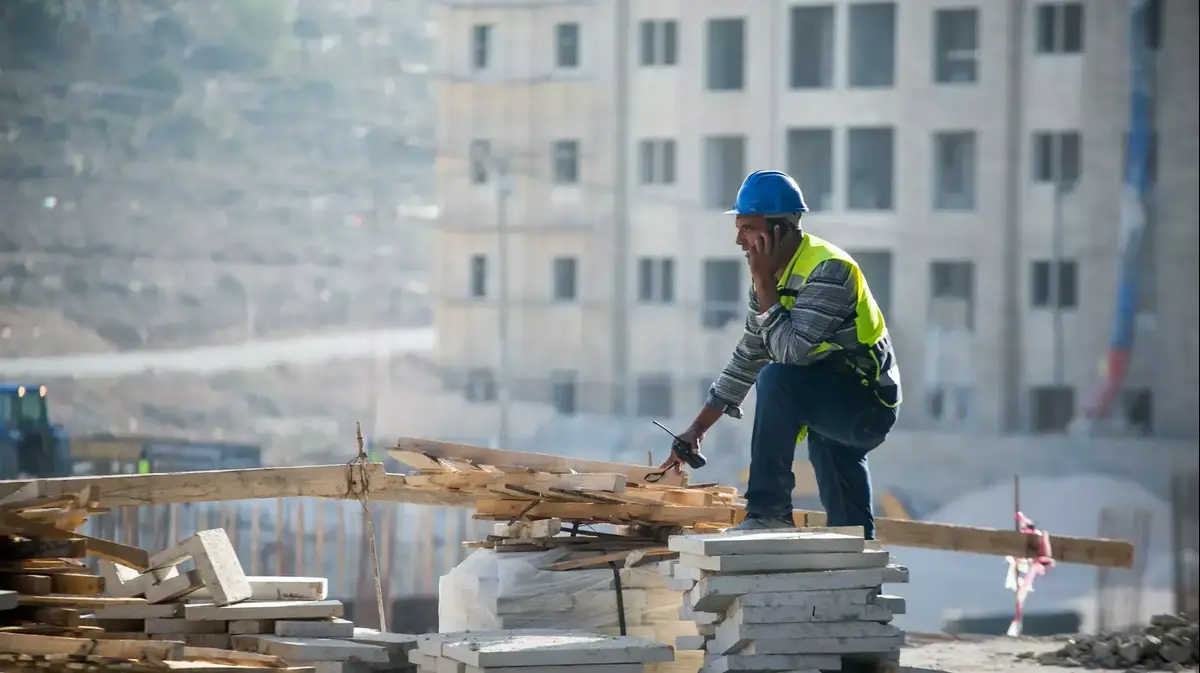The plan of the Minister of Migration, José Luis Escrivá, has already passed the first sieve of 10 ministries to reform the regulations of the Immigration Law with the aim of incorporating thousands of foreign workers into the labor market.
The last observations were sent on Friday, and a period of negotiation of the suggested changes to the draft now begins.
Escrivá stated on Monday that the reception of his proposal has been “very positive”.
Interior, the ministry least in favor of loosening the rules to regularize immigrants, does not reject the reform outright, but, according to sources familiar with the negotiations, it has warned that some articles must be reviewed to avoid "abuses."
The reform has three main axes: to reinforce the hiring of workers in their countries of origin, to create a new regularization route by roots ―making the papers easier for immigrants who are trained in sectors that need labor― and to make some demands more flexible so that who already works in the submerged economy can legally join the labor market.
In addition, it contemplates that international students can combine their studies with a job.
More information
More than 9,000 young foreigners obtain papers thanks to the change in the regulation of the Immigration Law
The ultimate goal is to attract highly and medium-skilled workers inside and outside of Spain and bring out the submerged economy at a time when key sectors —such as transport, hospitality or agriculture— complain of a lack of labor.
Escrivá proposes that on the path to recovery after the pandemic there will be “a true global competition for talent and human capital”.
The draft adds: "The current regulations, designed at the beginning of the century, produce an obvious constriction to cover the needs and imbalances of the current labor market."
The Ministry of the Interior, a key department in the negotiation, has requested more guarantees in the drafting of some articles because it fears that "abusive use" will be made of them, according to the sources consulted.
Among these articles is precisely the one that creates a new figure of roots linked to training.
This route would allow the regularization of immigrants who, after two years living in Spain, are trained in sectors where qualified personnel are lacking.
The initial authorization of one year would be only for residence, but, once the training is finished, it could include the possibility of working if a contract is presented.
Interior does not want that route to become a mixed bag to regularize immigrants.
Fernando Grande-Marlaska's department has not been the only one to raise its objections.
The Ministry of Territorial Policy, responsible for the management of the Immigration offices, is concerned about the "considerable increase in applications" that the reform will bring.
Sources aware of the negotiation explain that the ministry has requested that, before the regulation is approved, a study be carried out and the reinforcement of the human, technological and material resources that will be necessary to comply with the resolution deadlines established be undertaken. the law and that, currently, are already being exceeded.
Support of employers and rejection of unions
Escrivá has the support of the businessmen, but also of the economic wing of the Government, according to sources familiar with this negotiation process.
The Minister of Finance, María Jesús Montero, came to defend the reform publicly after criticism from the unions, who branded the initiative "classist" on the grounds that it will favor the employment of immigrants in precarious conditions that the Spanish reject.
The Executive, replied Montero, is seeking “a balance to try to ensure that a necessary workforce in the country can come in an orderly manner, but without this implying, in any case, that the conditions of the workers may be affected if it is not through well and better”.
Labour, Economy and Finance have made fundamentally technical observations.
Sources from United We Can explain that in the department of Yolanda Díaz there is also concern about the labor regime that will be applied to temporary workers and foreign workers hired in origin for other sectors.
The circular migration model that Escrivá wants to create involves the hiring of groups of workers in their countries of origin beyond the seasonal workers who come to harvest certain crops.
The proposal is that they can work a maximum of nine months each year for four years and encourage their return to the country of origin by offering them, after that time, an extension of another four years or a two-year permit to live and work in Spain.
The request of the Díaz ministry is that these migrant workers have a permanent discontinuous contract that implies applying the same labor protection standards to them as to the rest of the workers after the labor reform.
Escrivá's ministry now has to negotiate the changes with the rest of the departments and study the 27 contributions received during the public consultation, open to any citizen, which closed on Monday.
The Forum for the Social Integration of Immigrants has also participated in the process, a consultative body made up of representatives of the Public Administrations, immigrant associations and trade union and business organisations.
The Forum, according to the sources consulted, has suggested changes so that asylum seekers can work more quickly and has asked for more flexible requirements in other cases.
“In general terms, we have received very constructive contributions, which improve the text and delve into the philosophy that supports the opportunity of this proposal”,
With the contributions, Migrations will write a final draft that must be analyzed by the Council of State.
After its evaluation, the text will reach the Council of Ministers, which must approve it as a royal decree.
The processing is urgent, although the last change in the regulation to facilitate residence and work for migrant minors who arrived in Spain alone, which was approved in October, was also urgent on paper.
The process took almost a year, among other things, due to the lack of understanding with the Interior.
50% off
Exclusive content for subscribers
read without limits
subscribe
I'm already a subscriber









